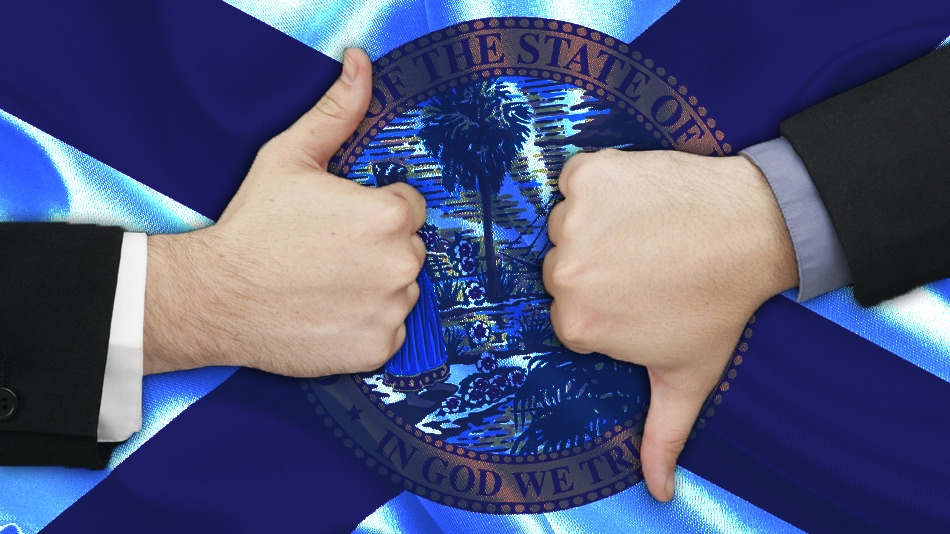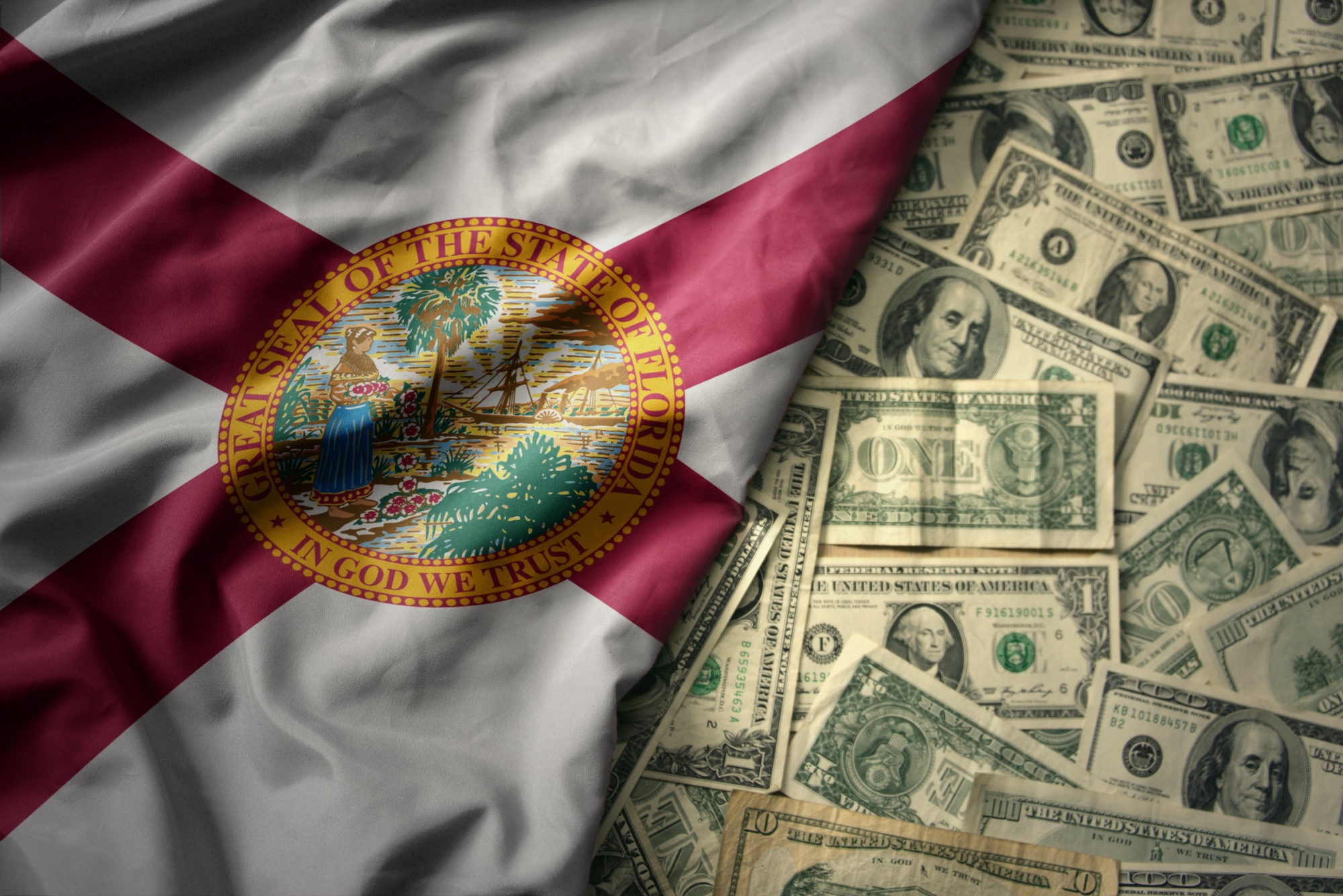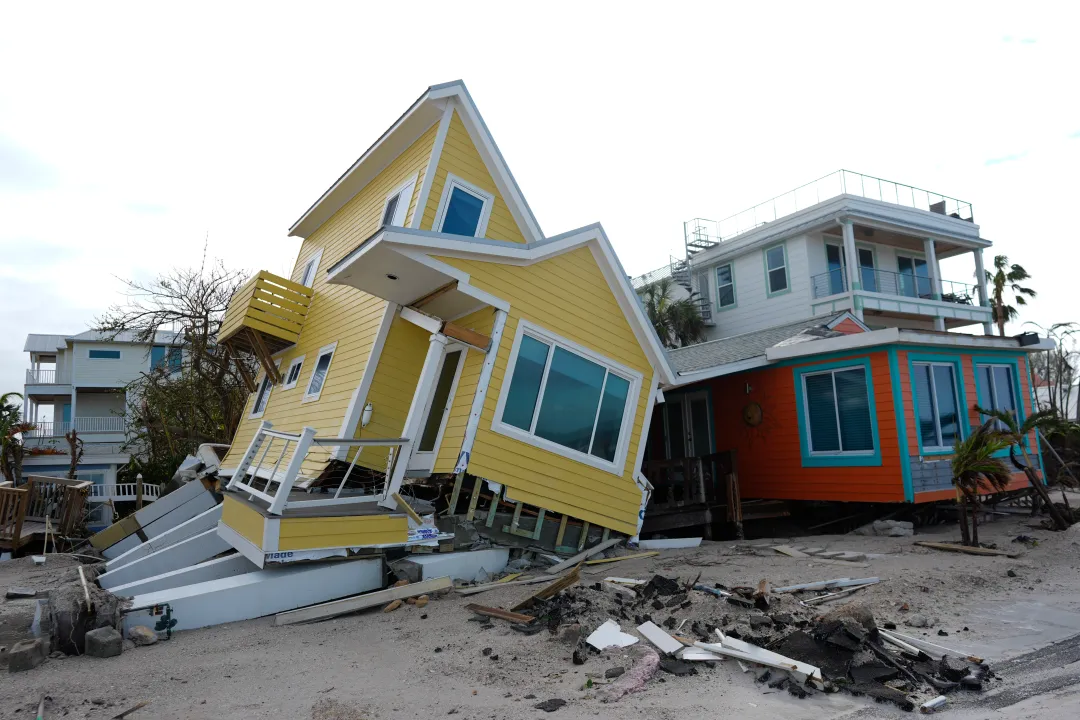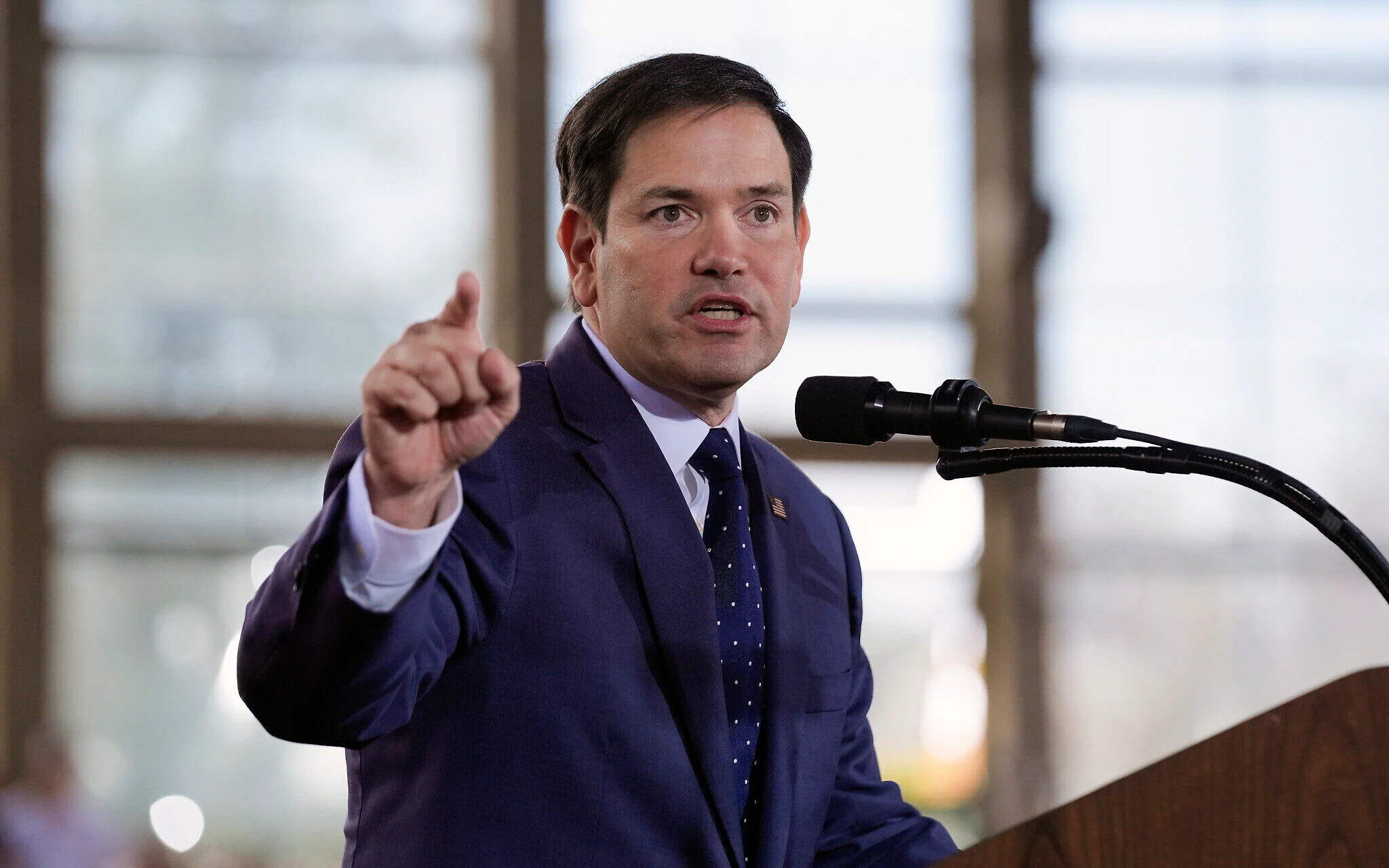Special Sessions are always a whirlwind of politics in a hurry. At no time in recent memory has that been more true than last week, when for the first time since Charlie Crist was Governor, the Legislature gaveled in and gaveled out of a Special Session.
This time, they gaveled back in to take up a series of legislation tackling illegal immigration in an effort to align with President Donald Trump’s executive orders and priorities. The problem was, in taking up its own proposals, legislative leadership snubbed Gov. Ron DeSantis whose allies had proposed a different set of bills.
The result has been a token DeSantis tour of grievances, with him fuming over the insubordination of a body that once did his bidding with few, if any, questions asked. And it’s for that reason you won’t see DeSantis listed this week as either a winner or a loser. It’s too soon to tell which he is, and we may never know.
On one hand, DeSantis is getting loads of air time, appearing on network cable and on local broadcast stations all across the state. He’s placed himself at the center of debate on how best to align with Trump. If the goal is to stir conversation, DeSantis is indeed a winner. And as the saying goes, there’s no such thing as bad press.
But on the other hand, he’s not getting what he wants out of this Special Session, and he certainly didn’t ingratiate himself to Trump in the way he might have hoped. His once loyal legislative branch has now asserted its independence, something that hadn’t through the first six years of the DeSantis era. That’s got to sting, and it’s hard to say whether lame duck DeSantis is wielding the same power he had just months ago.
No matter how you slice it though, we can see an argument where in this case, the perceived winner may actually be the loser, and vice-versa. Anyone want to take bets?
Now, onto our weekly game of winners and losers.
Winners
Honorable mention: Alexander Cartwright. The University of Central Florida President landed a one-year extension to his contract that came with a hefty 20% pay raise. The pay bump boosts Cartwright’s pay from a $750,000 base salary to a whopping $900,000. With eligible bonuses — now up to $375,000 — that means Cartwright could bring in total compensation of $1.275 million. For more perspective, consider that when Cartwright was first hired in 2020 his base salary was $600,000.
But his compensatory reward is not without merit. UCF Board of Trustees Chair Alex Martins said Cartwright’s leadership at the burgeoning university has “positioned UCF as a national leader in higher education,” noting that Cartwright has led UCF to be on track to achieve preeminence by 2026, has boosted the school’s four-year graduation rates and brought the percentage of students who complete their degrees without federal loans to 72%. He’s also helped grow UCF’s endowment from $163 million to $262 million.
Almost (but not quite) biggest winner: Jason Pizzo. It’s not a great time to be a Democrat in Tallahassee. Republicans continue to hold the state government trifecta. Adding insult to injury, their legislative majorities are now both supermajorities, meaning any work Democrats hope to accomplish is either dead on arrival, or must have GOP support.
But that hasn’t stopped Pizzo from getting stuff done, and being the ultimate statesman on the Senate floor. This week, as Republicans in the Legislature put a new feud with DeSantis on full display during a Special Session charting Florida’s path toward combatting illegal immigration and aligning its priorities with the Trump administration, Pizzo eyed an opening from across the aisle in the minority.
He announced he would file his own immigration bill, aimed at reducing illegal immigration, which should check a big GOP box, by creating legislation that is both effective and that has teeth. He said it would include benchmarks and criteria and would have “efficacy and success.”
But what set Pizzo apart this week wasn’t a legislative proposal on immigration, rather his reminder to all that common ground can be found even on the most partisan of challenges.
“The Senate Democratic Caucus is not opposed (to) cooperating, facilitating and assisting in the lawful execution of federal immigration law,” he said, reminding his colleagues and voters alike that Democrats aren’t necessarily the “open border” proponents their Republican foes might like people to believe.
Biggest winners: Ben Albritton and Danny Perez. It’s hard to believe that only a little more than a year ago, the Florida Legislature was content to carry Gov. DeSantis’ water, no matter what. Beloved as “America’s Governor,” and touted as a possible answer to the ills of President Trump, DeSantis would frequently ask lawmakers in the state’s legislative branch to jump, and they would respond with the proverbial, “how high?”
Not so anymore, as Albritton and Perez have shown this week with a knock-down, drag-out rebuff to DeSantis’ pitched immigration reform legislation. Together, the two chamber leaders defied DeSantis’ priorities, gaveling into the Governor-ordered Special Session only to gavel right back out and reconvene with their own set of legislative priorities.
Both sides claim they are doing Trump’s bidding, and both sides have spoken with the man himself. But it seems even Trump is declining to take DeSantis’ side. And who could blame him — it’s the Legislature’s proposals that would lend a new law’s name to the nation’s 47th Commander-in-Chief.
Albritton and Perez have angered DeSantis so much he’s spent much of the week traveling the state calling the Legislature’s passed actions on immigration, which would hand enforcement control to Agriculture Commissioner Wilton Simpson rather than the Governor himself, a “grotesque” policy that is “weak, weak, weak” He even went so far as to say he will veto the TRUMP Act if the pair ever send it his way.
Perez, meanwhile, asserted his own dominance, taking to a town hall meeting with Republican Party of Florida members to insist the Legislature’s version of immigration reform was far more conservative and that DeSantis’ version would merely amount to a “mini-version of ICE.”
Any way you slice it, Albritton and Perez this week reestablished legislative autonomy after six Legislative Sessions of the Governor sticking it to them.
Losers
Dishonorable mention: The Governor’s comms staff. This one goes mostly to Jeremy Redfern, DeSantis’ press secretary, but we’d be remiss not to mention DeSantis’ OG bulldog, Christina Pushaw, who now serves as a senior management analyst in his office. Both have taken to X this week to break an unspoken, yet cardinal, rule in GOP politics: Don’t bash fellow Republicans.
Redfern has directed much of his ire atSimpson, who under the Legislature’s approved bill would be tasked with enforcement duties rather than DeSantis.
In one tweet placing the word Republican in quotation marks, suggesting legislative leadership aren’t real Republicans, Redfern called the Legislature’s proposal “an amnesty bill” and suggested that Simpson would be a shill for “Big Ag bureacracy.” That toes DeSantis’ line this week that Simpson may side with farmers he says benefit from undocumented labor.
There were plenty more tweets bashing fellow Republicans, putting the GOP infighting on full display. And Pushaw wasn’t any different. She got into a back and forth with Sen. Randy Fine, one of the TRUMP Act sponsors DeSantis has been railing against.
As with any pissing match, someone’s going to eventually get pee on their shoe. In this case, it may have been not just Pushaw, but DeSantis’ staff writ large, with Fine tweeting a thanks for the reminder that the Legislature needs “to hold that oversight committee meeting on what you do and the rest of Team #RinoRon do all day to justify your six figure taxpayer checks other than play on social media.”
Someone else suggested DeSantis wouldn’t have his plane much longer, given the possibility of such an inquiry into DeSantis’ use of taxpayer-funded staff and travel.
Ouch.
Almost (but not quite) biggest loser: Department of Education. Florida students are performing at their worst levels in math and reading in about 20 years, according to the National Assessment of Educational Progress (NAEP) national report card released this week.
It found that Florida eighth graders scored the lowest last school year than in any year over the past two decades. Those students’ reading scores averaged the lowest in a quarter century.
The picture isn’t much better better for Florida’s fourth graders, who scored the lowest in reading since 2003. Fourth grade math scores hovered around the same level as two years ago, but are still falling below pre-pandemic test scores, the analysis found.
As bad as that sounds — and make no mistake, it’s bad — Florida’s scores mirror national trends that continue showing students struggling to keep pace with their academics post-COVID.
That might have mitigated the ultimate fail had it not been for Florida Education Commissioner Manny Diaz’s response to the report. He missed an opportunity to reflect and identify ways to improve and instead feigned ignorance and pointed fingers.
Diaz said he was “surprised and dismayed” by the results, according to the Orlando Sentinel, and then questioned NAEP’s methodology. Rather than searching for fixes at home, Diaz called on federal officials to correct any “shortcomings.”
It’s one thing for the adults in the room to play politics and blame games behind closed doors, it’s another entirely to do so on the backs of the children who need resolution, not condemnation.
Biggest loser: The Process. For some of us, this week has been akin to Netflix dropping a new series of our favorite show ready for a weekend binge. But the same people who salivate at the soap opera-yness of it all also understand it makes The Process in general a big ol’ fat loser. Simply put, lobbyists won’t know who to trust moving into this year’s Regular Session. And neither will rank-and-file legislators.
Let us explain.
As it stands, legislation needs leadership support to make it through the rigorous legislative process. So someone like Blaise Ingoglia, who has taken DeSantis’ side in this immigration battle, isn’t likely to get many bills through. But DeSantis also wields a mighty thing called the veto pen. You can bet your bottom dollar any legislation coming out of 400 Monroe St. is going to get a hard look and possibly, or even probably, a big red slash. That’s fine for anything Republicans can bet on a safe number of supporters to override a veto, anything requiring Democrats’ buy in might be DOA.
The problem is there, too, for lobbyists. They’ll have to get through Albritton and Perez to usher priorities through the legislature, but in doing so, they might attract DeSantis’ ire, and that dreaded veto pen.
The result isn’t likely to lead to an unproductive Session. A trifecta almost guarantees progress on conservative priorities. But it does spell a big headache for those involved.
Post Views: 0

 Entertainment8 years ago
Entertainment8 years ago
 Entertainment8 years ago
Entertainment8 years ago
 Politics8 years ago
Politics8 years ago
 Tech8 years ago
Tech8 years ago
 Tech8 years ago
Tech8 years ago
 Tech8 years ago
Tech8 years ago
 Politics8 years ago
Politics8 years ago
 Tech8 years ago
Tech8 years ago









